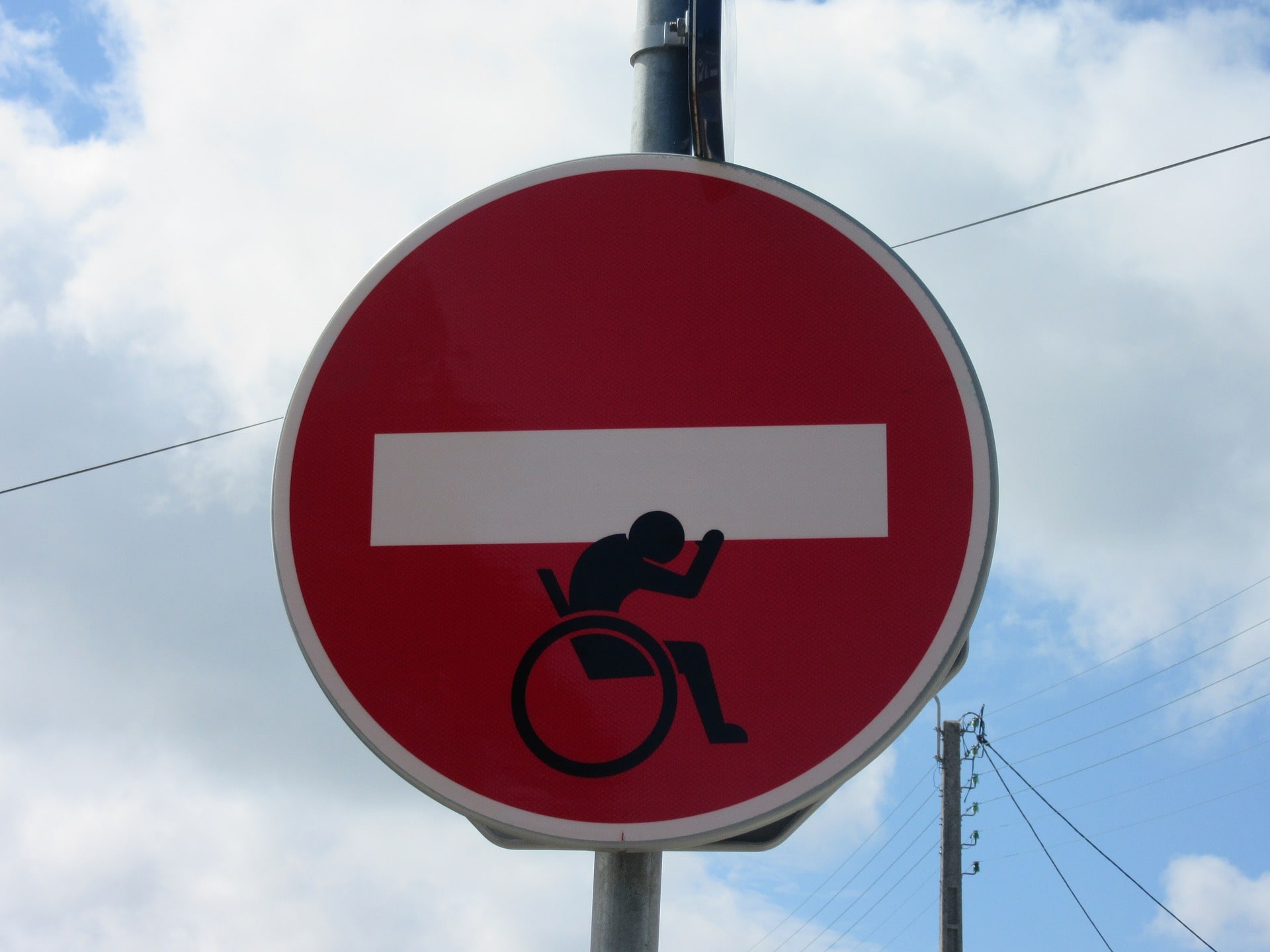I’m sorry, no more wheelchairs today
Imagine visiting an attraction and being told that you are not allowed to enter because of your ethnicity, as they will only allow ten people with your heritage in per day. Or because of your sexuality unless you want to go in without your family and friends. How long would it be before the media outcry reached epic proportions and angry protests of discriminatory behaviour were being sounded from the rooftops? And rightly so.
Yet why is that this is still accepted, in fact, even the norm, for many people with disabilities?
Myself and my children, both of whom are wheelchair users, recently visited London, along with some friends. We know our way around pretty well, having lived there for several years and still visit a few times a year. But the friends we were travelling with had never been and were excited to have us as their unofficial tour guides. Numerous group chats on WhatsApp had talked of places to visit but there was one which was top of the wish list.
Of course, with the current Covid situation, everyone will be familiar with the need to book tickets in advance to visit most attractions. So, we chose the day we wanted to visit and then tried to book our tickets.
Cue two alternative booking methods:
Able-bodied person:
- Go to website
- Go to section that says book tickets
- Choose date, time and number of tickets required
- Book tickets
- Make a cup of tea and start looking forward to your visit
Disabled person
- Go to website
- Spend too long trying to find the poorly marked section of the site that tells you if you are even able to access the attraction in a wheelchair
- Find it, only to learn that, as a wheelchair user, you must book a timeslot at least 24 hours in advance as only three of you are allowed in the building at any one time.
- Try to book wheelchair slot, only to find that there is nothing available for a least a week as they have reached their quota for each day. As a side note, should you want to book tickets for your able-bodied friends they can visit tomorrow.
- Go back to rebook your hotel as you will need to travel on different dates.
- Find that they no longer have a room available on the dates that you want to travel.
- Cancel your original reservation and try to rebook elsewhere, only to be told that they do not have any accessible room large enough for a family. You can, however, book a standard accessible room and adjoining room, meaning that you must pay double the original cost.
- Resign yourself, book it and go back to book your tickets for the attraction. Find that those wheelchair slots are now gone and the next earliest is in ten days.
- Realise that you cannot attend with both your children at the same time as they will only let one wheelchair user in every hour. Wonder momentarily which child to abandon for an hour, before deciding to contact the team at the attraction to find out if there is a more realistic solution.
- After several minutes trawling through the site and vari0us search engines, you realise that it is impossible to speak to a human being as there is no contact number. Send an email explaining the difficulty.
- Two days later receive a response saying the website is working fine and suggesting we try again to book a slot.
- Respond to once more to reiterate that I have two children and at this point am advised to book two slots an hour apart. By this time all wheelchair slots are gone.
- Pour a very large gin.
The above scenario is one that unfortunately many disabled people are only too familiar with and experience on a regular basis. But I must ask, how can this be OK? Why is that businesses can provide such a different experience based on your physical ability?
I realise that in many cases there are, unfortunately, practical factors that impact on the ability of organisations to provide a completely accessible experience. But I cannot help but wonder if many of these obstacles could be overcome with a more fluid mindset and a more solutions driven approach, coupled with a sincere recognition of the need to cater fully to all members of society.
I was recently fortunate enough to have a conversation with a very interesting and influential individual from the field of wheelchair sport. He told me of a meeting he attended in which coaches were asked if they felt comfortable coaching a disabled person. Note here the language used – not did they feel that they had the relevant skills to help develop their sporting prowess, but did they feel comfortable? Imagine that in a different scenario. Headlines would read ‘Coach sacked for racist/homophobic/sexist attitude’ – and rightfully so.
We have made progress in attacking the ‘ism’s; that still permeate our society. Thank goodness. We do however still have a long way to go, that much is self-evident. So please, think of those people living with disabilities when you make that journey.






